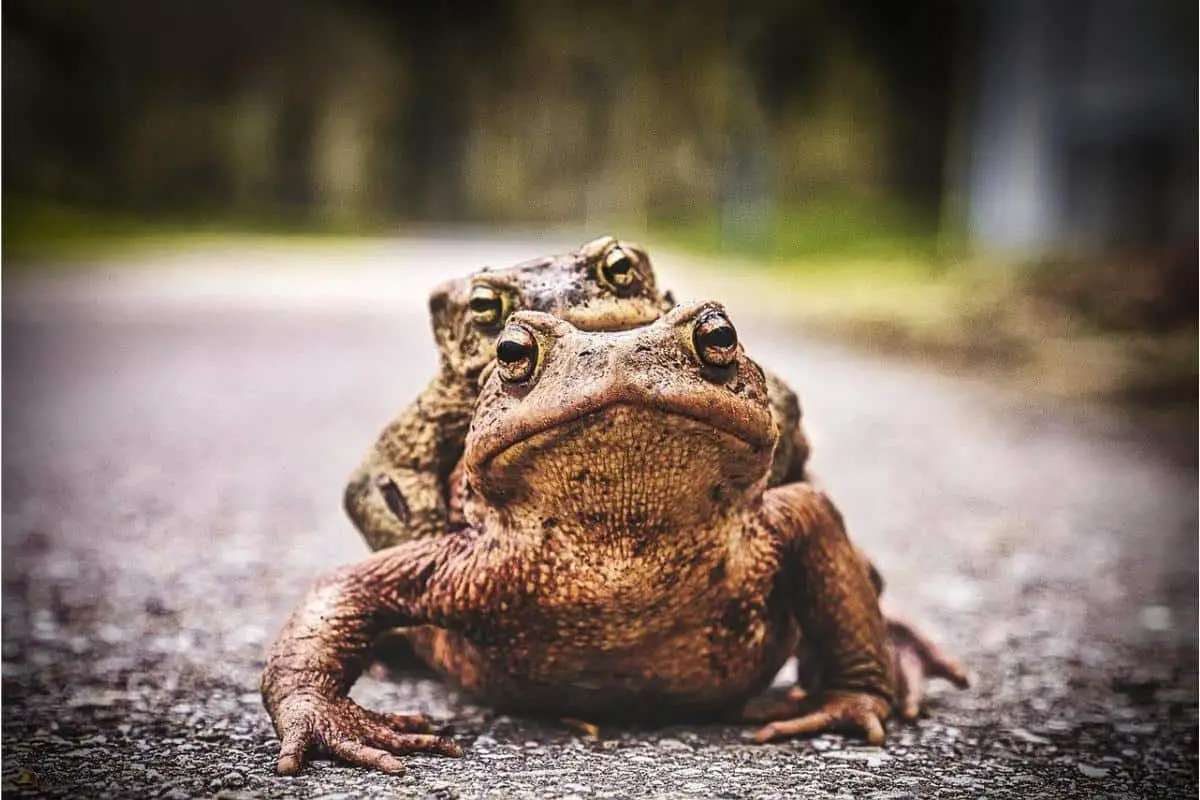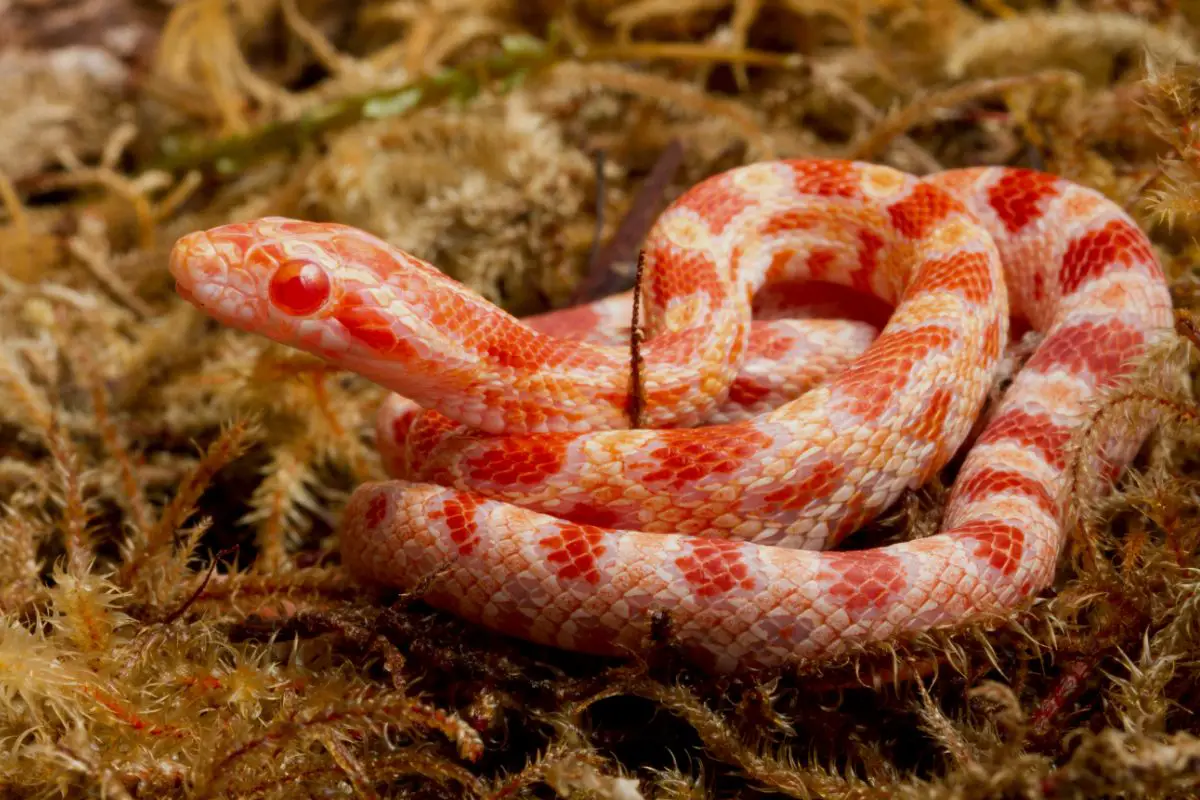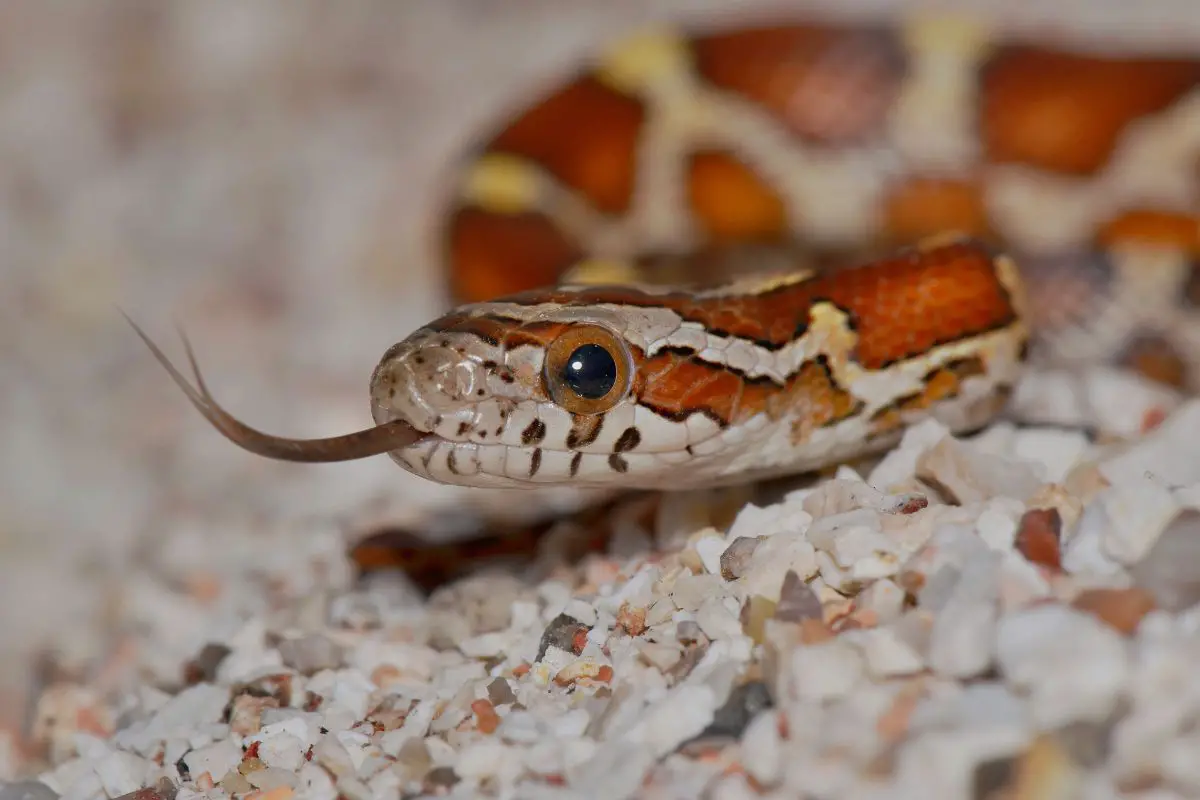The main reason frogs croak at night is to attract mates. Sounds can range from chirps and hoots to the more common ribbit-ribbit or croak. While some people may enjoy the sounds like a relaxing ambiance, it can also be the main reason you’re kept up all night. So what can you do to stop frogs from croaking at night?
Some of the best methods to keep frogs quiet at night is to find effective ways to deter them from making a home in your backyard. However, there are other methods you can take if you just want to stop hearing them without removal from your yard or if you have pet frogs living in your home with you. Find a method that best suits your situation in these 11 tips on how to get rid of frogs making noise at night.
Why Do Frogs Croak at Night?
Frogs croak at night primarily as a means of communication and establishing territory. The rhythmic sounds produced by male frogs, often referred to as croaking, serve multiple purposes during the breeding season. One key function is attracting potential mates, with each species having a distinct call that signals their presence and reproductive fitness. Additionally, the loudness and frequency of croaks can indicate the size and strength of a male, influencing female mate choice.
Frogs also use their calls to communicate with rival males, establishing territorial boundaries and minimizing conflicts through vocal displays rather than physical confrontations. The croaking behavior is intricately linked to the frogs’ biology and environmental factors, such as temperature and humidity, influencing the transmission of sound through the air and water.
How to stop frogs from croaking at night – 11 tips

Whether you have a pet frog croaking indoors or trying to stop outdoor frogs from ruining your sleep, one of these tips provides the solution you need.
1. Identify protected or invasive species
This is an important tip because some of the methods in this article may not be suitable depending on the frog species. Some frogs are protected, so you can’t disturb them in nature.
Endangered or invasive species may be protected by law and require you to contact your local wildlife department. They can provide tips on what to do or stop by to retrieve and relocate the frogs to a more suitable habitat.
2. Physically remove the frogs
If you don’t have endangered or protected species in your backyard, you can try to remove the frogs physically. However, there are certain precautions to take, and they may be harder to do, depending on the frog species.
Using a long-handled net can make it easy to scoop them out of ponds or from trees. Place them in a suitable container and release them. You can also call professionals to help you relocate them properly.
3. Reduce insect population
Frogs are attracted to areas with plenty of insects, such as moths, flies, snails, worms, and slugs. Without large food sources, they will go elsewhere to find food.
You can also introduce other natural insect predators to compete with frogs and deter them from your garden. These predators include spiders, insect-eating birds, beetles, and wasps.
4. Use predator decoys

Decoys are objects that resemble natural predators of frogs. You can place owls, snakes, and spider decoys around your garden to prevent the frogs from being too loud.
For example, a rubber snake can be strategically placed in trees to deter tree frogs from staying and mating on your property. If they think a predator is in the area, they’ll be quieter throughout the night.
5. Leave out salt or saltwater
Frogs need to keep their skin hydrated and dislike salt. It’s uncomfortable for them to stand near or on the salt since their skin starts to dry out.
You can spray saltwater around your yard or simply leave out salt granules in areas you don’t want the frogs to hang out. Other natural deterrents you can use for frogs include:
- Baking soda
- Coffee grounds
- Lemon juice
- Vinegar
6. Remove all wet areas
Frogs typically croak during mating season and need wet environments for their eggs. If you actively dry out any wet spots near your house, you can deter frogs from congregating on your property. Make sure you don’t have any waterlogged containers and dry out small puddles with towels or shop vacs.
7. Modify pond habitats

If you have a pond on your property that naturally attracts frogs, it may be harder to dry up the water. Instead, you can create a barrier around your pond so it’s harder for them to reach the water or add fish or turtles to the pond to disrupt the frogs.
You can also sprinkle salt, coffee grounds, or citric acid around the pond to deter frogs from getting too close. These substances all affect the frog’s skin and make them uncomfortable.
8. Remove common shelter areas
Without anywhere to hide or shelter under, frogs can feel uncomfortable and leave the area. Clean up your backyard to remove fallen debris, branches, and leaves. Toads particularly like hiding under damp leaves, wood, rocks, or plastic. You should also move any plastic structures like play slides or planters onto cement so they don’t burrow underneath them.
9. Make loud noises
If the crescendo of croaks gets too loud for you to sleep comfortably, try making a loud and abrasive noise. This can make the frogs think there’s danger nearby or scare them to stay still and quieter. You can stomp your feet, yell, or use a handheld noisemaker, such as shaking an empty tin with nails inside.
10. Use an ultrasonic animal repeller
For similar results to the previous tip, you can purchase an ultrasonic animal repellent to encourage frogs to be quieter. These are solar-powered, motion sensor-activated devices that emit sound waves that animals can hear. They can also emit light to startle frogs.
11. Soundproof your room
If you don’t mind the frogs hanging out in your yard but just want a good night’s sleep when their croaking gets loud, it’s time to soundproof your interior. You can add thick curtains on your window to block out some of the sounds or install soundproof foam panels.
Also, make sure all the door and window edges are properly sealed. You can also sleep with earplugs or create white noise in your room with a fan or background noise app.
Keep your pet frogs quiet
Find your frog a mate

Here’s a tip for pet owners dealing with their frogs croaking at night. You can minimize the nighttime sounds by having a male and female together. The males won’t be lonely and call out to attract a mate to their cage.
However, if you find your frog still croaks loudly throughout the night, even with a female, you’ll want to trade her for a different female. It means she’s not the right mate.
Change the indoor environment
Another tip for pet owners is to adjust the humidity conditions in your frog’s indoor environment to lessen the ideal conditions for breeding. For example, mist the plants in the morning instead of the evening.
If your frogs are in a non-drafty location, you can keep the heating thermostat at the lower end of your frog species’ ideal temperature range. You can also change where your frog is located by placing them in a room with a closed door that is further from your bedroom.



